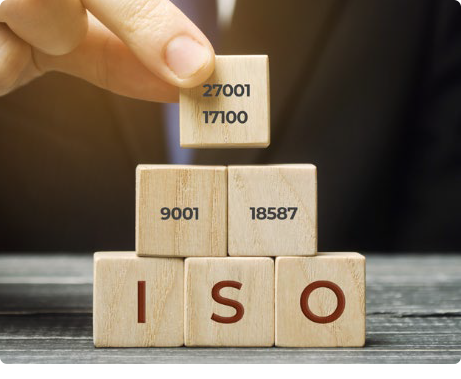As global corporations look to enter the Asian markets, the demand for precise translation of legal and technical documents has surged. Hansem Global’s Certified Translation Service meets these needs, helping businesses successfully establish themselves in Asia. This article will discuss the necessity of certified translations, their future outlook, and the role international standards play in the translation process.
Necessity of Certified Translations
Certified translations are increasingly crucial in fields like Legal, Life Sciences, IT & Technology, Finance & Banking, and Education, where the accuracy of documents can have significant legal or technical implications.
- Legal: Documents such as contracts, legal notices, and court decisions require precise terminology and phrasing, which certified translations provide, ensuring legal validity.
- Life Sciences: Misinterpretations in documents like clinical trial reports and medical device manuals can lead to severe health risks, making high-level professional translations essential.
- IT & Technology: User manuals and software development documentation demand technical accuracy, achievable through certified translations which allow for precise technical adjustments.
- Finance & Banking: Economic reports and investment documents necessitate a deep understanding and precise translation of financial terms.
- Education: Accuracy in translating academic papers and educational materials is vital as it directly influences the quality of education.
Market Trends and Demand
With globalization accelerating, the Asian markets are experiencing rapid growth, leading to an increased demand for translations across various industries, particularly in technology, law, and healthcare. Accurate translations are critical, and any errors can pose significant legal and business risks. Consequently, the importance of certified translation services is becoming more pronounced.
Located in Korea and specializing in Asian languages, Hansem Global understands the complex, structural, and cultural nuances of Asian languages. Korean, Chinese, and Japanese, for example, each use distinct grammatical systems and vocabularies, requiring a high level of expertise and experience for accurate translation. Hansem Global excels at capturing these nuances and delivering high-quality translations.
The Role of International Standards in Certified Translations
What are the essential skills needed for certified translations? They include:
- Accuracy and Reliability: Translations must accurately reflect the original document’s meaning and be entirely reliable. This demands high linguistic skills and specialized knowledge. The international standard for the accuracy and appropriateness of translation outputs as of 2024 is ISO 5060.
- Document Management and Security: Safely managing and securing client documents is critical, especially as certified translations often involve sensitive or confidential information. Adhering to international standards like ISO 27001 ensures quality service by maintaining stringent security measures.
- Regulatory Compliance and Certification Processes: Services must meet various legal requirements and international standards. For example, complying with ISO 17100 guarantees service quality by providing clear guidelines on translator qualifications, translation and revision processes, and final quality checks.
Hansem Global and International Standards
Hansem Global holds essential international certifications to ensure the quality and security of its Certified Translation Services. These standards guide our translator selection, translation process, and quality evaluation criteria.

- ISO 9001: The Foundation of Quality Management
ISO 9001 helps organizations develop effective quality management systems that consistently meet customer requirements and satisfaction. In certified translation services, this standard ensures accuracy, timeliness, and consistency in service delivery, enabling Hansem Global to meet all customer expectations. - ISO 17100: Requirements for Translation Services
ISO 17100 is an international standard designed specifically for translation services, providing clear guidelines on translator qualifications, translation and revision processes, and final quality checks. Compliance with ISO 17100 ensures document accuracy and professionalism, which are crucial for legal and official document translations. - ISO 27001: Information Security, Cybersecurity, and Privacy Protection
ISO 27001 helps organizations protect sensitive data, which is crucial in certified translations involving personal information or legal documents. Compliance with ISO 27001 enhances data security and minimizes the risk of data breaches, giving customers confidence in Hansem Global’s high-level security management. - ISO5060: Evaluation of Translation Output
Published in 2024, ISO5060 establishes standards for evaluating the quality of translation outputs. It also provides guidelines for the qualifications and competencies of evaluators. Hansem Global has integrated the ISO5060 evaluation matrix into its Production System, ensuring that each translation meets these rigorous standards. This incorporation not only enhances the accuracy and reliability of our translations but also aligns our processes with the latest international criteria for quality assessment in the translation industry.
Conclusion
If you need accurate and credible translations, consider using Hansem Global’s Certified Translation Services. Fully equipped with all necessary international standards, Hansem Global is ready to support your global business success with its expertise in certified translation services. For more information, please contact Hansem Global customer service. Our experts will listen carefully to your needs and provide the optimal solution.






